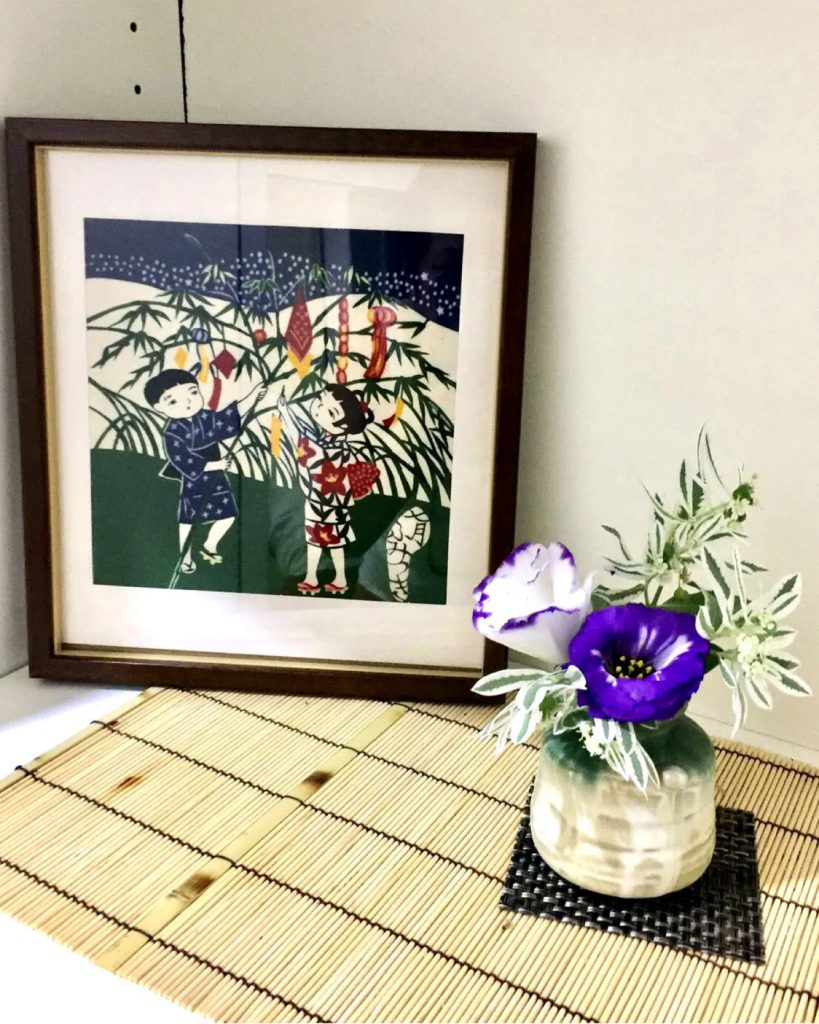
Bamboo leaves toss in the wind
Rustle, tremble every leaf
High above them shiny and bright
Stars like gold and silver sand
On these colored strips I write
Deepest wishes of my heart
Now above me shiny and bright
Stars please grant all that I wrote
This “Tanabata-sama” written by Hanayo Gondo represents the Tanabata Festival more accurately than any explanation. The words “Tanabata” and “Tanabata Festival” are not used directly anywhere, but you can clearly imagine the Tanabata Festival. Tanabata is the rainy season on July 7th in the new calendar, but in the lunar calendar it is in front of Obon in the height of summer. Even in haiku, “Tanabata” is the autumn season word. “Tanabata-sama” was adopted as a song by the Ministry of Education in 1941, when the Pacific War began, so it was written in an era when the influence of the Lunar calendar still remained. I don’t know which calendar Hanayo Gondo wrote about the Tanabata Festival in, but in any case, it must be a masterpiece that will continue to be sung.
ささの葉さらさら のきばにゆれる
お星さまきらきら きんぎん砂子
五しきのたんざく わたしがかいた
お星さまきらきら 空からみてる
権藤はなよが作詞したこの「たなばたさま」がどんな説明よりも的確に七夕祭りを表しています。どこにも直接「七夕」とか「七夕祭り」の言葉は使われていませんが、明確に七夕祭りをイメージできます。七夕は新暦では7月7日の梅雨時分ですが、旧暦では夏真っ盛りのお盆前です。俳句でも「七夕」は秋の季語です。「たなばたさま」が文部省唱歌として採用されたのは、太平洋戦争が始まった昭和16年ですから、まだ旧暦の影響が多く残っていた時代の作詞です。権藤はなよがどちらの暦で七夕祭りを詠ったのか分かりませんが、いずれにしろ、これからも歌い継がれていく名歌に違いありません。
